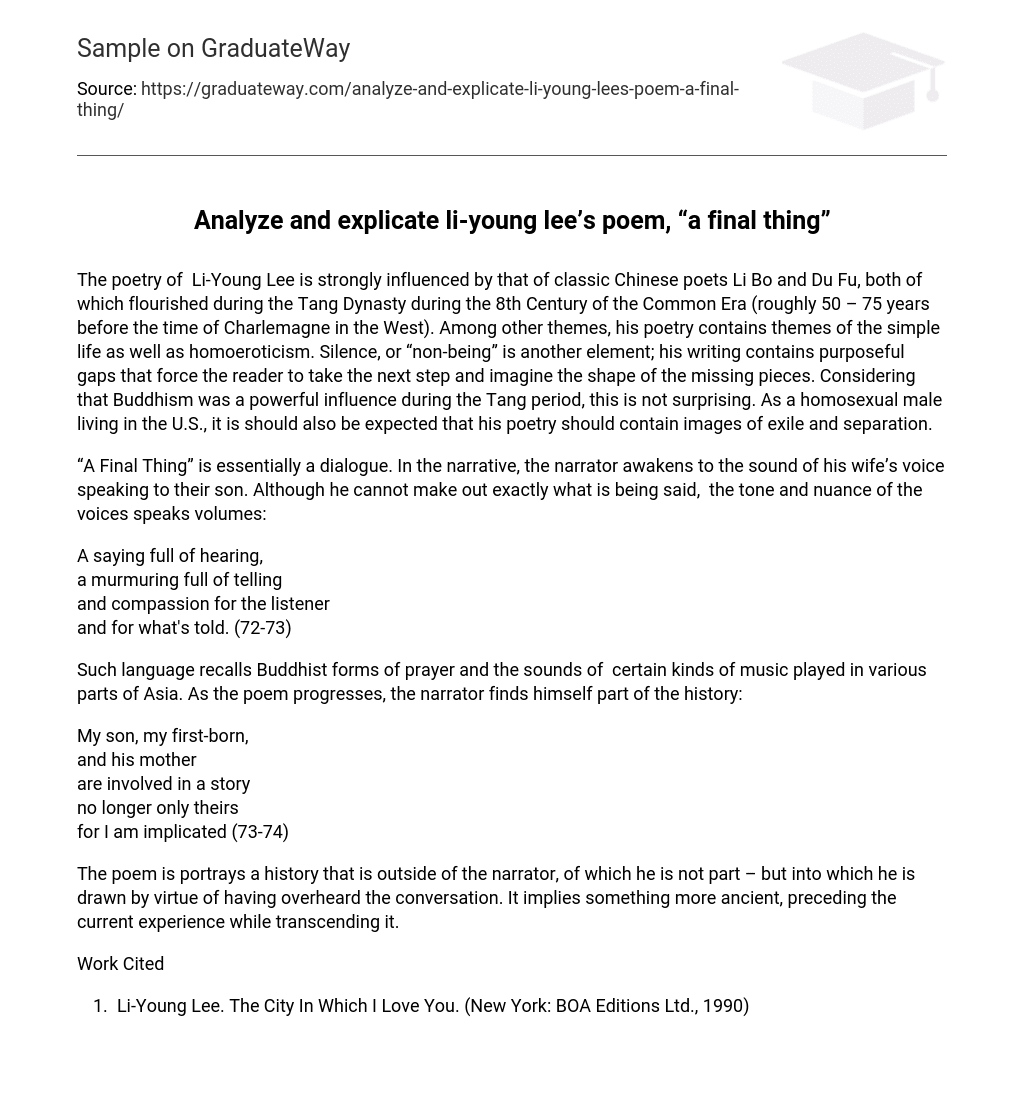The poetry of Li-Young Lee is strongly influenced by that of classic Chinese poets Li Bo and Du Fu, both of which flourished during the Tang Dynasty during the 8th Century of the Common Era (roughly 50 – 75 years before the time of Charlemagne in the West). Among other themes, his poetry contains themes of the simple life as well as homoeroticism. Silence, or “non-being” is another element; his writing contains purposeful gaps that force the reader to take the next step and imagine the shape of the missing pieces. Considering that Buddhism was a powerful influence during the Tang period, this is not surprising. As a homosexual male living in the U.S., it is should also be expected that his poetry should contain images of exile and separation.
“A Final Thing” is essentially a dialogue. In the narrative, the narrator awakens to the sound of his wife’s voice speaking to their son. Although he cannot make out exactly what is being said, the tone and nuance of the voices speaks volumes:
A saying full of hearing,
a murmuring full of telling
and compassion for the listener
and for what’s told. (72-73)
Such language recalls Buddhist forms of prayer and the sounds of certain kinds of music played in various parts of Asia. As the poem progresses, the narrator finds himself part of the history:
My son, my first-born,
and his mother
are involved in a story
no longer only theirs
for I am implicated (73-74)
The poem is portrays a history that is outside of the narrator, of which he is not part – but into which he is drawn by virtue of having overheard the conversation. It implies something more ancient, preceding the current experience while transcending it.
Work Cited
- Li-Young Lee. The City In Which I Love You. (New York: BOA Editions Ltd., 1990)





